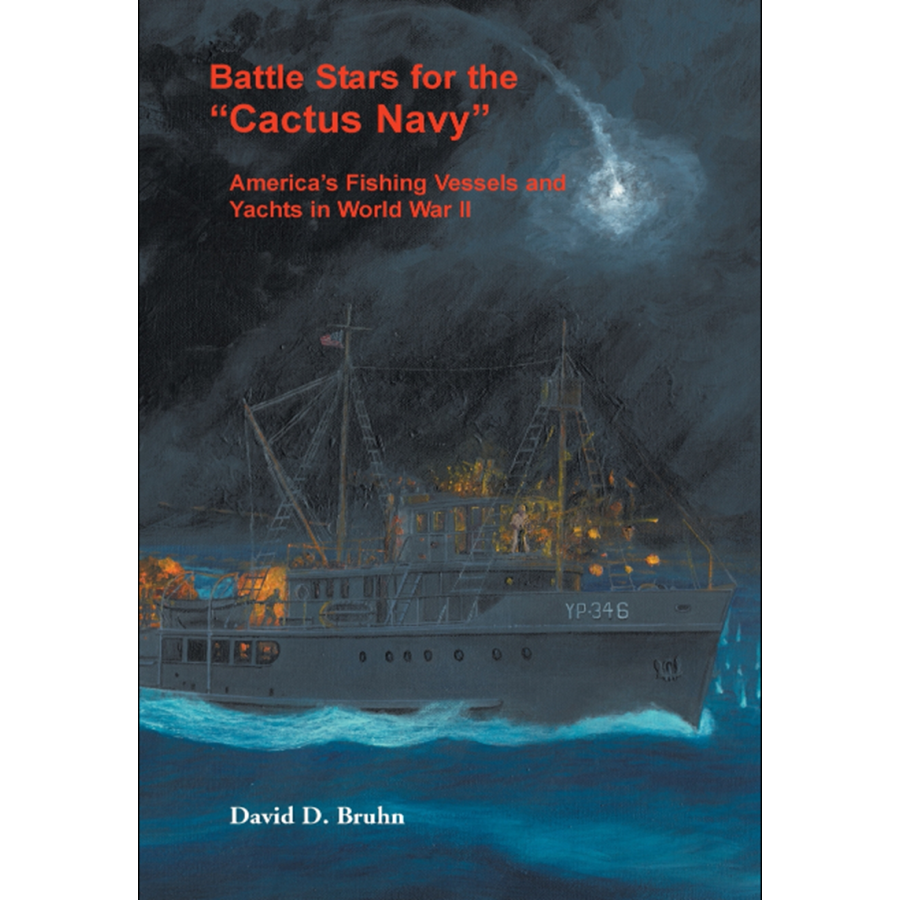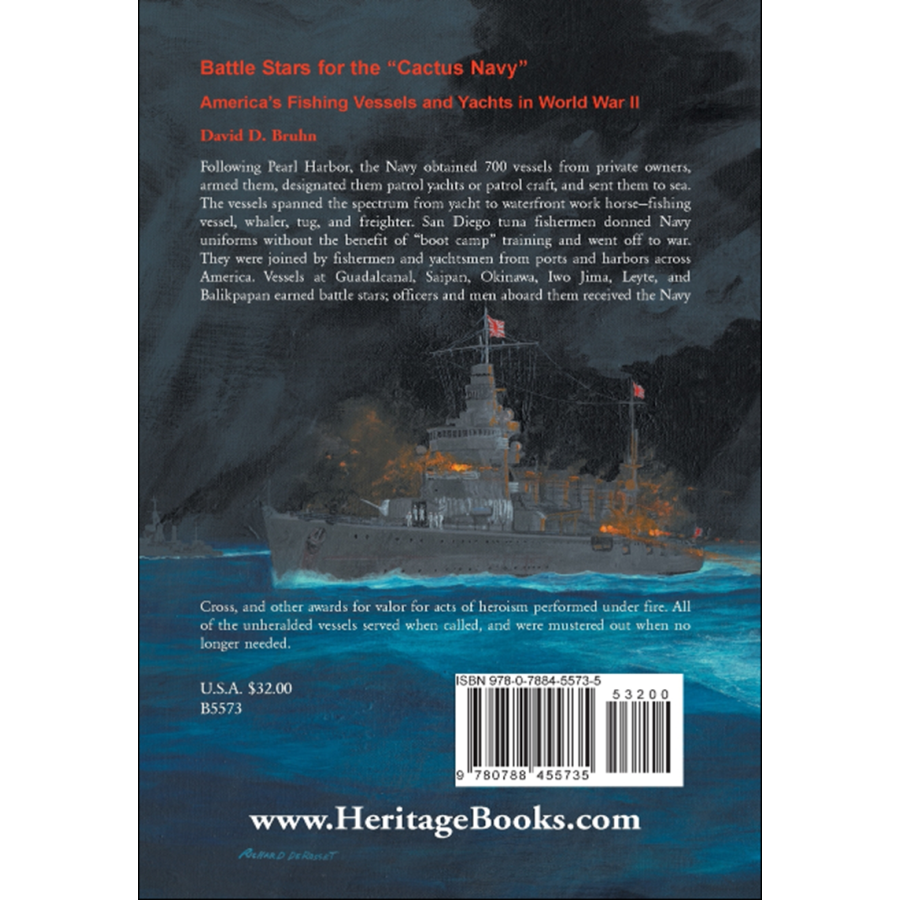Battle Stars for the "Cactus Navy": America's Fishing Vessels and Yachts in World War II
Couldn't load pickup availability
Following the attack on Pearl Harbor, the Navy obtained approximately 700 vessels from private owners, armed them, designated them as patrol yachts (PY) or patrol craft (YP), and sent them to sea. The vessels spanned the spectrum from yacht to waterfront work horse—fishing vessel, whaler, tug, and freighter. San Diego tuna fishermen—including those that would be aboard their boats at the Battle of Midway and at Guadalcanal supporting the 1st Marines—donned Navy uniforms without the benefit of "boot camp" training and went off to war. They were joined by fishermen and yachtsmen from ports and harbors all across America, as well as men straight from cities and rural towns.
Officers and crewmen who took vessels into harm's way received the Navy Cross, and other awards for valor for acts of heroism performed under fire. Officers aboard the yachts Fisheries II and Maryanne were awarded Navy Crosses for their actions during the defense of the Philippines—three posthumously, as they died while prisoners of war. Three men aboard the YP-346—sunk by the Japanese light cruiser Sendai—also earned Navy Crosses, and the YP-346 and two other former tuna boats at Guadalcanal received the Presidential Unit Citation for heroism.
YPs and PYs at Saipan, Okinawa, Iwo Jima, Leyte, and Balikpapan earned battle stars for combat; the ex-halibut boat YP-251 was credited with sinking a Japanese submarine in Alaskan waters, and the patrol yacht Siren earned a battle star during one of the most successful series of attacks on a convoy by a single German submarine. Others did not fare so well; the YP-389 and patrol yacht Cythera were lost to German U-boats in infamous "Torpedo Junction" off North Carolina. All of the unheralded vessels served when called, and like militiamen of old, they were mustered out when no longer needed. Battle Stars for the "Cactus Navy" is a companion book of MacArthur and Halsey's "Pacific Island Hoppers".
Cdr. David D. Bruhn, USN (retired)
2014, 6" x 9", paper, index, 404 pp.
ISBN: 9780788455735
101-B5573

